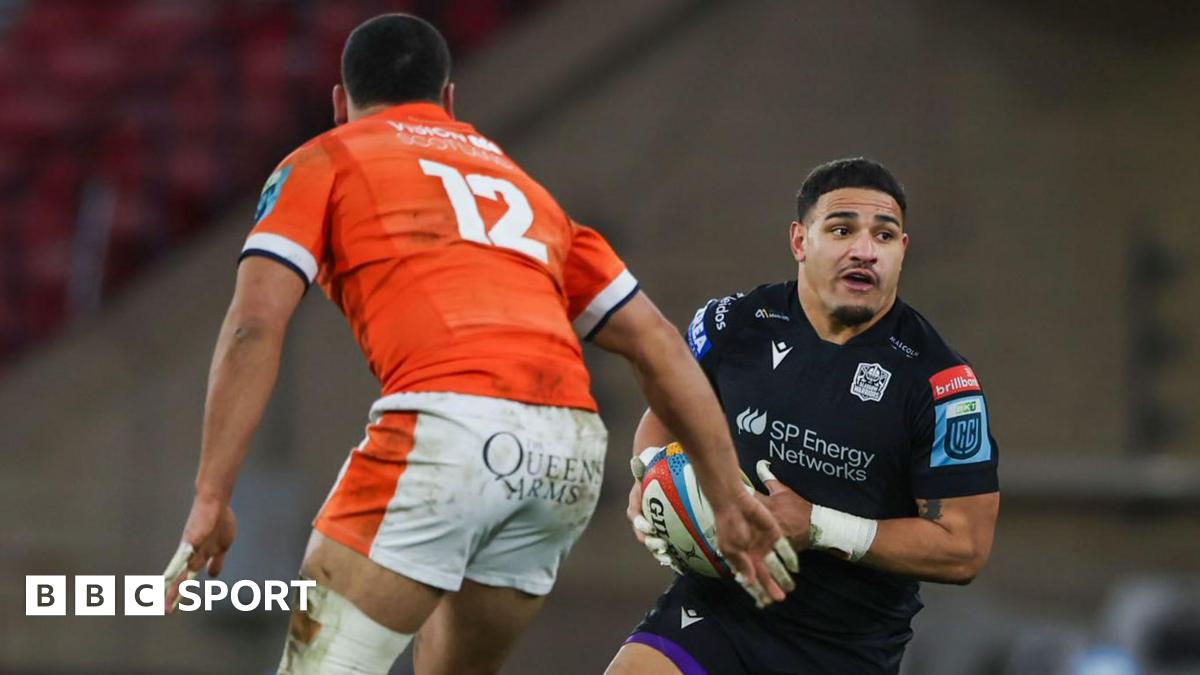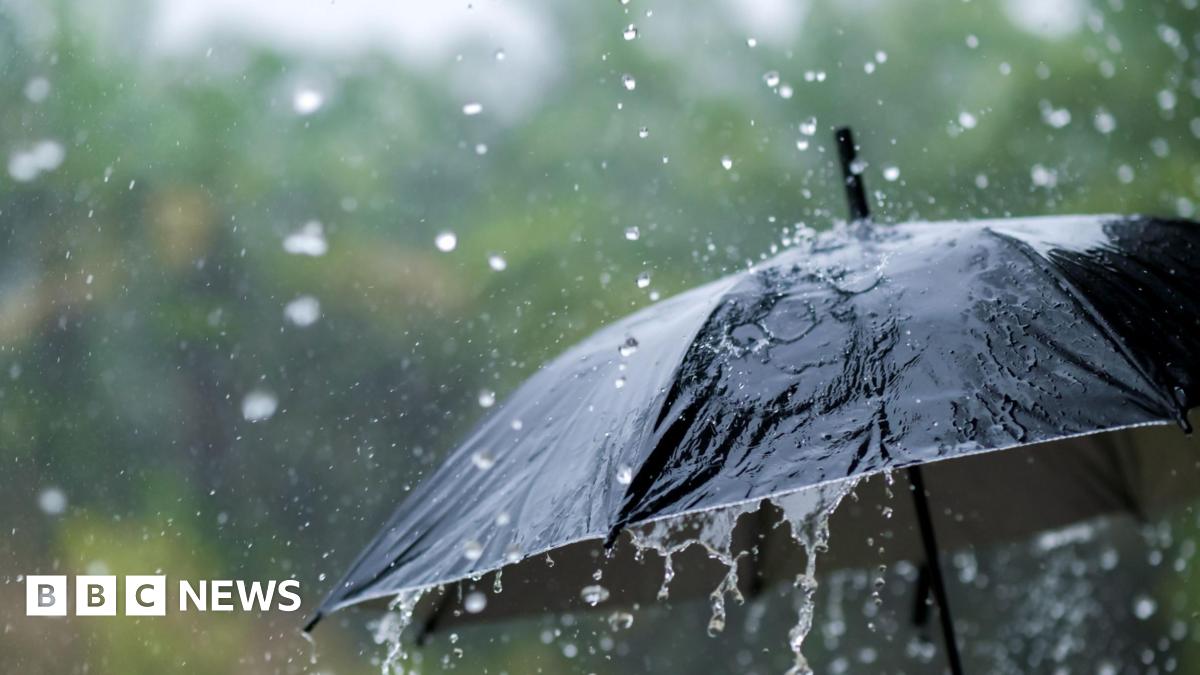Football
Former first minister questions future in UK after riots
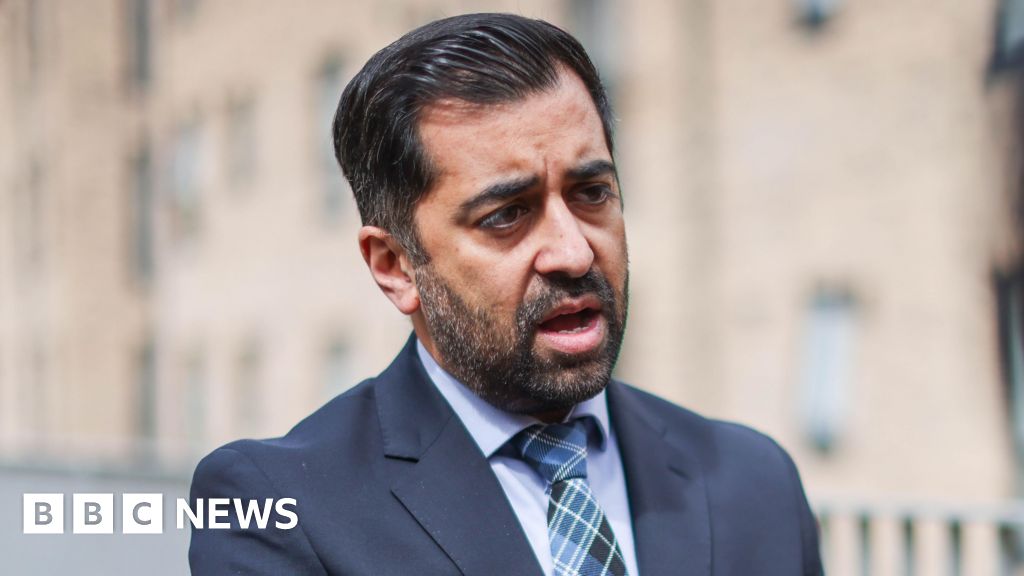
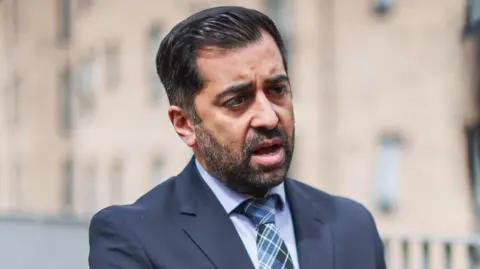 BBC
BBCFormer First Minister Humza Yousaf has said he questions whether he and his family have a future in Scotland or the UK following days of violent riots.
Violent disorder took place in cities across England and in Northern Ireland over the weekend.
The BBC understands some groups have planned protests and counter protests in Scotland in the coming weeks.
Police Scotland said any disorder will be “identified quickly” and “responded to immediately”.
Speaking to the News Agents podcast, Mr Yousaf said he was “as Scottish as they come” but he didn’t know if he saw a future here for his wife and three children.
The MSP for Glasgow Pollock said: “I was born in Scotland, raised in Scotland, educated in Scotland, just welcomed my third child here in Scotland. Was leader of the Scottish government for just over a year, leader of the Scottish National Party.
“You cut me open and I’m about as Scottish as they come but the truth of the matter is I don’t whether the future for me, and my wife and three children is going to be here in Scotland, the United Kingdom or indeed in Europe and the west.”
He said he had been concerned about the rise of Islamophobia for some time.
“We are now seeing the culmination of not years, actually decades of anti-migrant, anti-Muslim rhetoric being normalised in our political discourse now playing out in the most violent way possible,” he added.
Mr Yousaf became the first ethnic minority leader of a devolved government and the first Muslim to lead a major UK party when he became first minister in March 2023.
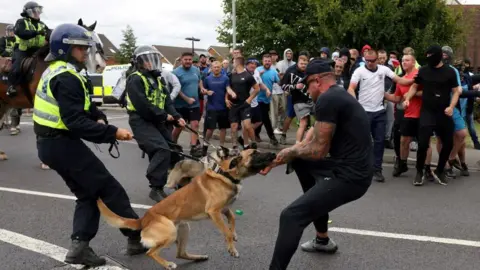 Reuters
ReutersPolice responded to violent scenes in towns and cities such as Rotherham, Middlesbrough and Bolton over the weekend. Disorder also occurred in Plymouth and Belfast on Monday.
More than 400 people have been arrested in connection with the disorder and 100 have so far been charged.
The disorder follows the fatal stabbing of three girls in Southport. Subsequent unrest has been fuelled by misinformation online relating to the attacker.
Prime Minister Keir Starmer has condemned the violence, telling ministers: “It is violent disorder and needs to be treated as such, as criminal activity.”
He said the government would take “all necessary action” to bring the disorder to an end.
Counter protests planned
Assistant Chief Constable Gary Ritchie of Police Scotland said they are aware of some protests and counter protests planned in Scotland over the coming weeks.
He said: “We understand the violent disorder in other parts of the United Kingdom is causing concern and we are continuing to provide reassurance to communities across the country through enhanced patrols and direct engagement.
“We will continue to monitor the situation to ensure that any potential for violence or disorder in Scotland is identified quickly and responded to immediately.
“Police Scotland is a rights-based organisation, and our role is to ensure public safety while balancing the rights of protesters who wish to peacefully demonstrate.”
First Minister John Swinney visited the central mosque in Edinburgh yesterday to highlight to communities that they have “the assurance of safety”.
Mr Swinney said that he has met police chiefs who have reassured him that “they are undertaking comprehensive intelligence gathering 24 hours a day across social media” to ensure they are aware of any possible incidents in Scotland.
Mr Swinney added: “The events of the last few days have caused deep anxiety across communities in the United Kingdom and Scotland is no different.
“I want to make it absolutely clear this is a welcoming country that brings people together into cohesive communities.”










